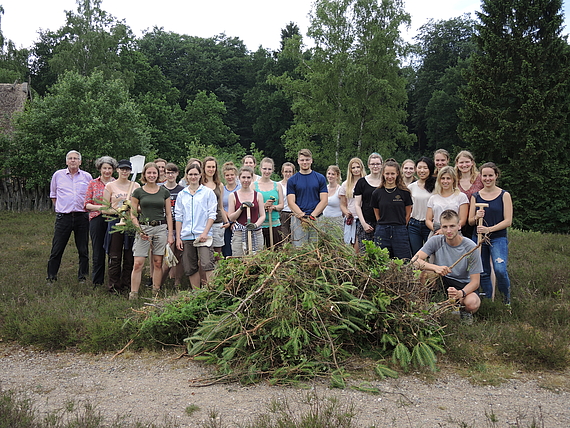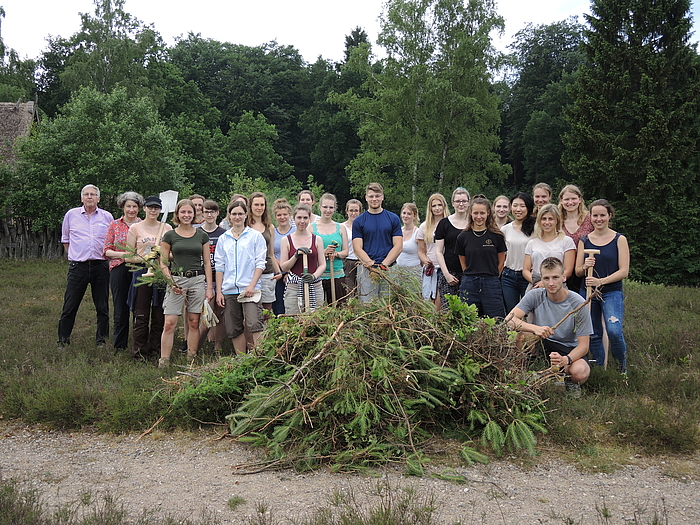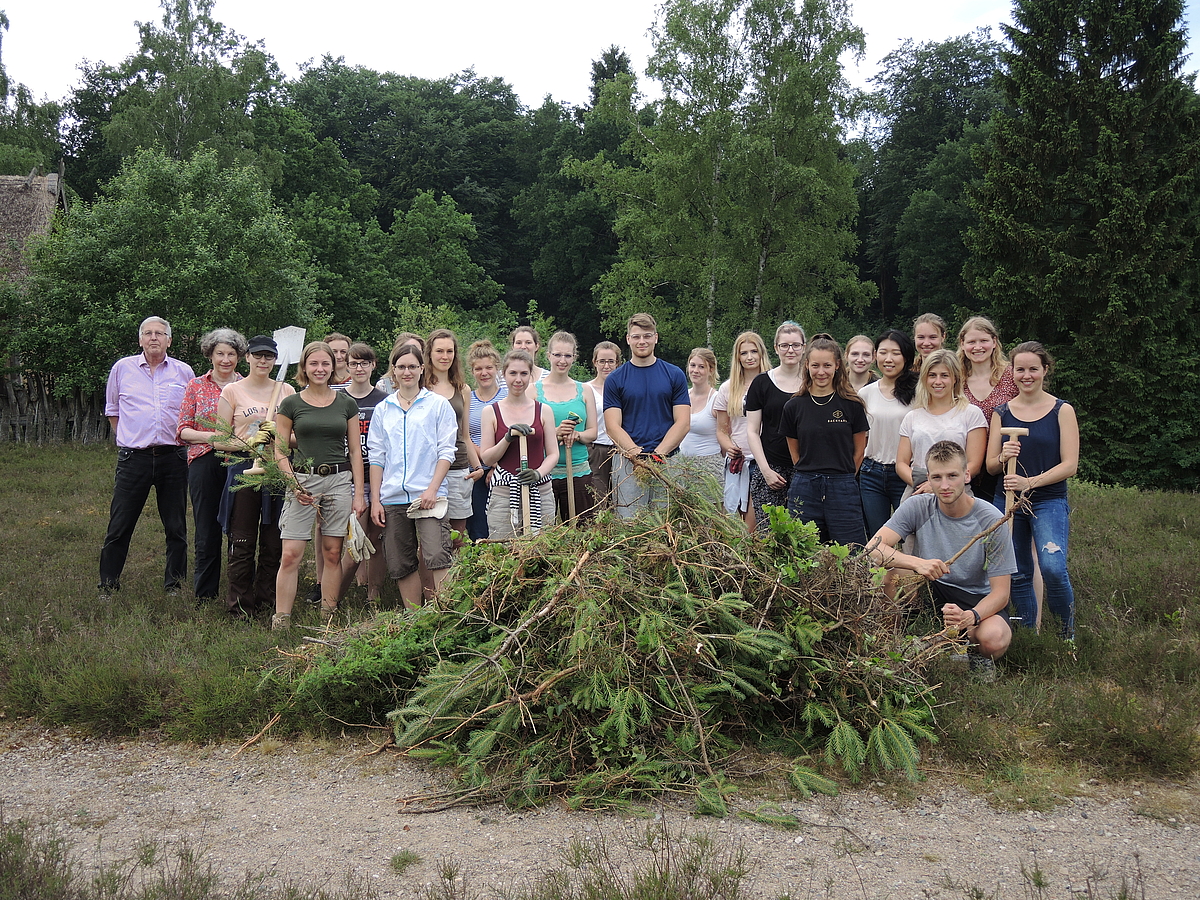On 1 June 2018, 24 students travelled with Dr Roswitha Kirsch-Stracke to the open air museum of the Lüneburg Heath in Hösseringen.
Dr. Rüdiger-Lutz Klein, former biology and geography teacher in Uelzen and long-time planning group member of the museum, introduced the history development, organisation and tasks of the museum.
During the tour of the museum grounds, the students got an impression of life, living and working in the Lüneburg Heath between 1550 and 1950. The buildings were presented by Verena Görke, a student of landscape architecture and environmental planning at the LUH who works as a freelancer in the museum village for guided tours. Dr Klein gave an insight into the history of historical kitchen gardens in the region using the 400-year-old Brümmerhof as an example. The "farmer's garden" was critically examined and exposed as a cliché - far removed from documented and comprehensible rural garden culture.
The emergence of the cultural landscape "heath" could only be dealt with in its basic features, but the students found diverse references to their study contents. On the heath area of the museum, the students then got down to practical work: Emerging birch, pine and spruce trees were removed and gathered into a respectable pile. Afterwards, the knowledge about characteristic plant species and plant communities of the heath was deepened together.
The final discussion showed that the practical work had significantly increased the learning success and that it was precisely this that raised new questions, for example about the possibilities, limits and meaningfulness of heath management in the museum and elsewhere - topics for an excursion next year.
Press article in the Uelzener Anzeiger from 23.06.2018











